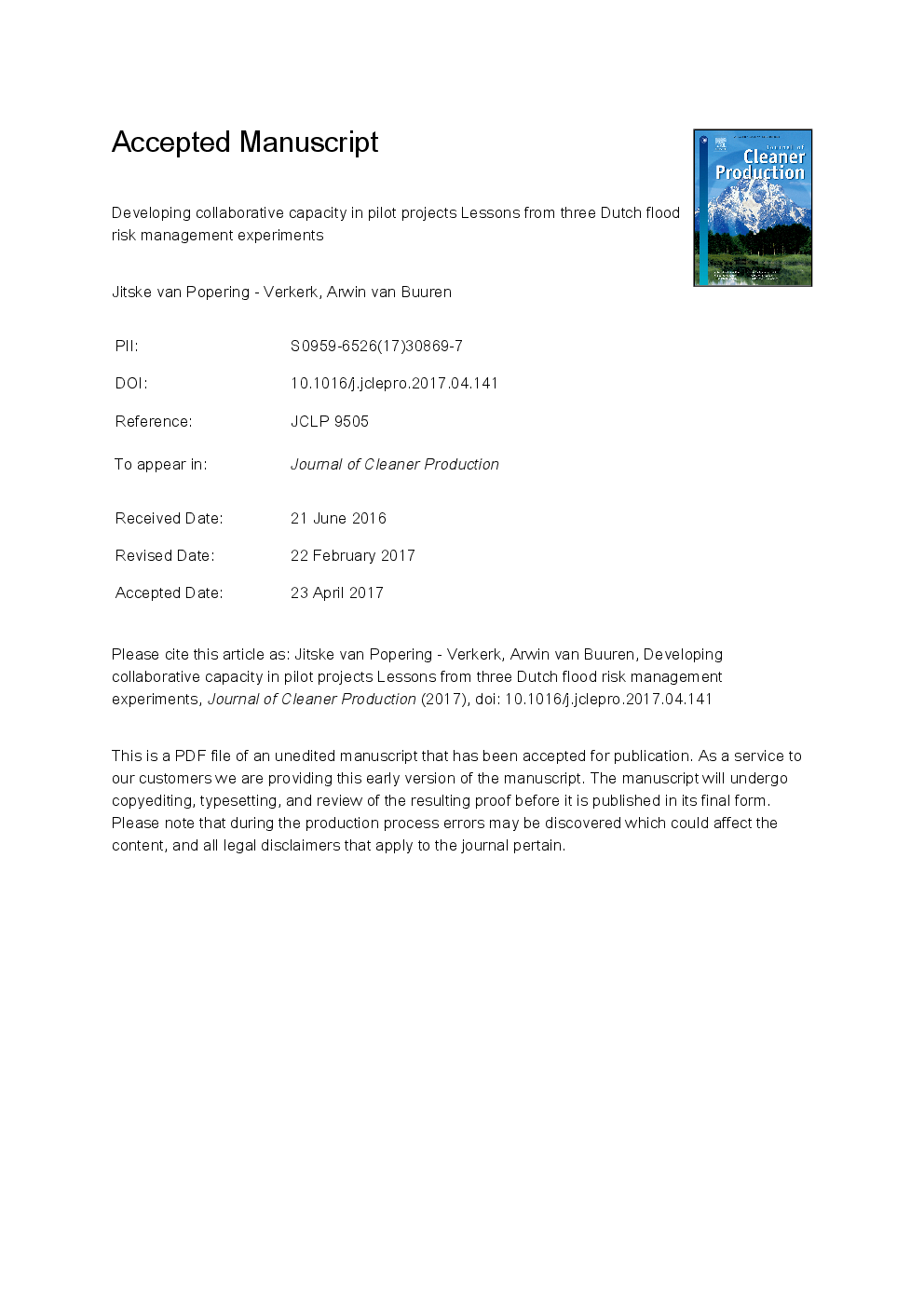ترجمه فارسی عنوان مقاله
توسعه ظرفیت مشترک در پروژه های آزمایشی: درس های سه آزمایش مدیریت ریسک سیل در هلند
عنوان انگلیسی
Developing collaborative capacity in pilot projects: Lessons from three Dutch flood risk management experiments
| کد مقاله | سال انتشار | تعداد صفحات مقاله انگلیسی |
|---|---|---|
| 104011 | 2017 | 22 صفحه PDF |
منبع

Publisher : Elsevier - Science Direct (الزویر - ساینس دایرکت)
Journal : Journal of Cleaner Production, Volume 169, 15 December 2017, Pages 225-233
ترجمه کلمات کلیدی
پروژه های خلبان، ظرفیت همکاری، مدیریت ریسک سیل، سازگاری تغییرات اقلیمی، زمینه کارکردی، حکومت،
کلمات کلیدی انگلیسی
Pilot projects; Collaborative capacity; Flood risk management; Climate change adaptation; Functional context; Governance;

